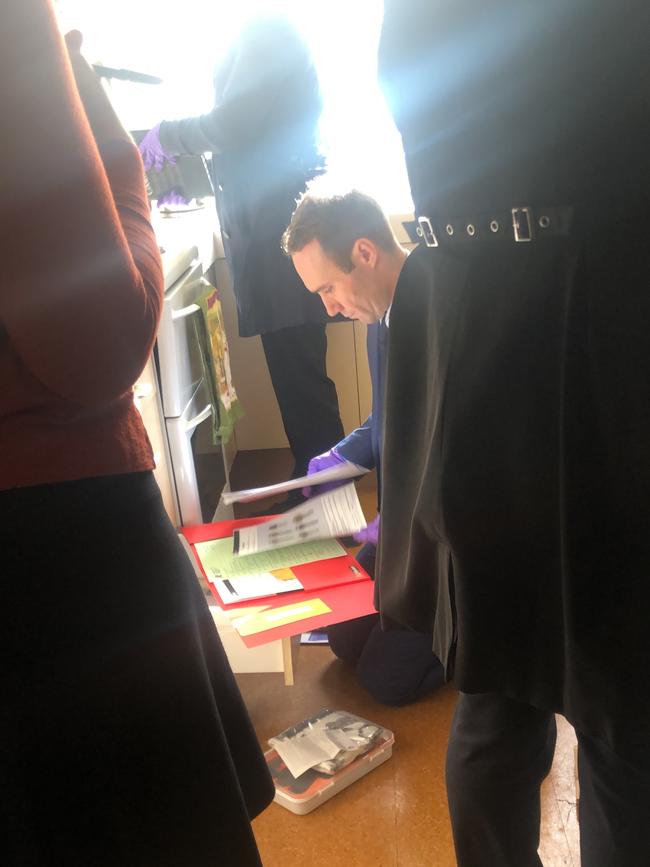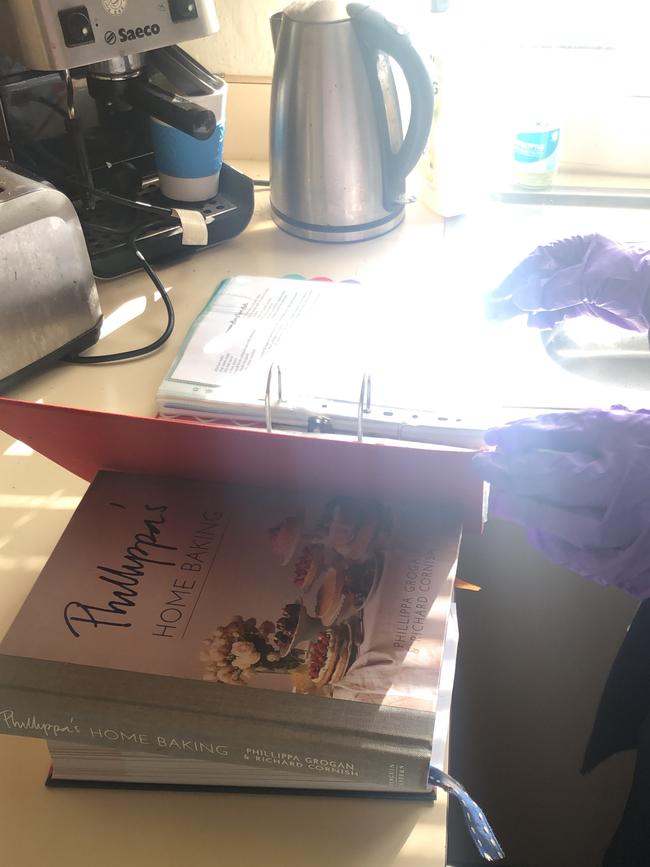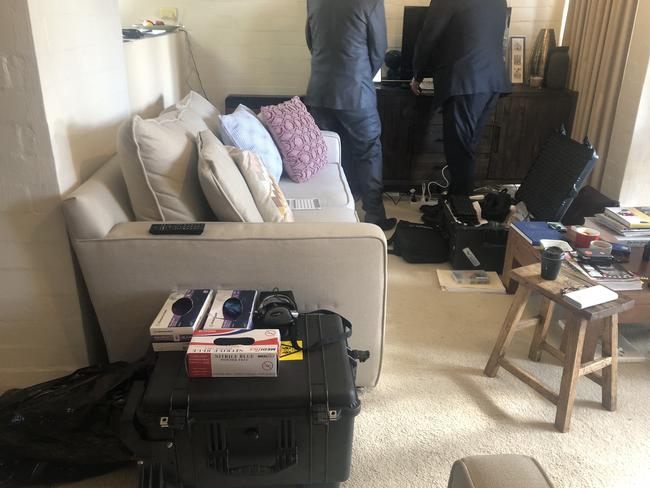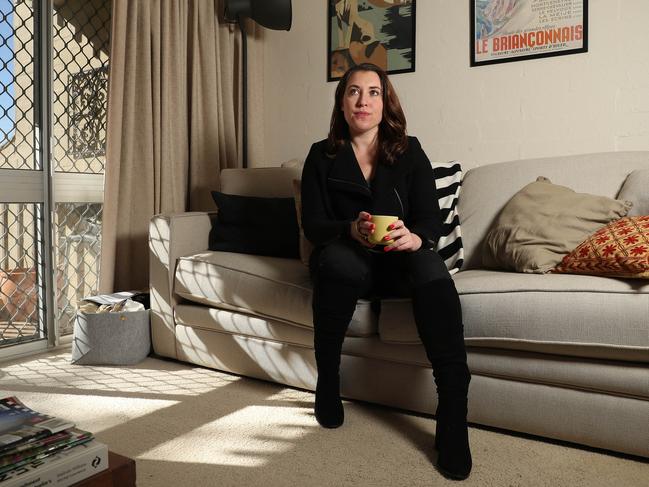Media raids: Why journalist thinks whistleblowers should be protected
Just over three weeks since the Australian Federal Police invaded and raided every drawer, nook and cranny of her Canberra home, journalist Annika Smethurst shares what life has been like since her life — and home — was turned upside down.
It is hard to overemphasise how unusual is was to see the heads of rival media organisations stand together in Canberra on Wednesday calling for greater protections for the press. Journalists are a competitive bunch and rivalry among organisations and reporters is standard. Beating rival news organisations to a story is rewarded and cultivating sources as your own ensures exclusive stories.
But the recent police raids on my home and the ABC changed the game.
It was a watershed moment for press freedom and saw foes unite.

For me, this was a worthy outcome from an overwhelmingly bad month.
Having my home searched by seven police officers for seven hours was intimidating and felt like an invasion of privacy.
I was even less comfortable having my underwear drawer discussed on talkback radio.
A holiday to south East Asia also failed to provide an adequate hide-out.
Footage of my home made the news in Singapore while a several Australian tourists recognised me in Vietnam.
Yet, on Wednesday, when a coalition of media organisations came together to lobby for reforms, it finally felt like it hadn’t been in vain.
Some have quipped that it will be hard to convince the public that journalists need more protections at a time when public trust in the media is at an all-time low.
But the six key changes the media industry wants, won’t put journalists above the law.
In fact its not about giving the media more power, the fight for press freedom is about Australians and protecting your right to know.
Possibly the most important change we want to see is protections for whistleblowers.


The brave employees who see wrongdoing and refuse to turn a blind eye.
In the days after my home was raided, Attorney-General Christian Porter said I was “not the target of any police investigations” implying that the authorities were instead searching for the source of my story.
As a journalist it’s difficult to separate the two.
Coming after my source is the same as coming after me, the two are inextricably linked.
MORE ON ANNIKA SMETHURST
ANNIKA SMETHURST RAID WAS MORE THAN AN INVASION OF PRIVACY
NEWS CORP TO SEEK HIGH COURT CHALLENGE TO AFP RAID WARRANT
THE CHILLING MESSAGE AFP RAIDS SENDS ABOUT OUR LEADERS
Public sector whistleblowers must be protected.
We also want to see changes to the way documents can be stamped as secret.
A Minister recently told me he was often shocked by the “top secret” documents which landed on his desk describing some of the material as “no more important than a shopping list”.
Legal expert Bret Walker SC — a former national security legislation monitor — agrees.

He has argued that the Government can use the classification system to avoid public scrutiny and embarrassment.
Stamping documents as “top secret” means the police must investigate whenever material is disclosed without authorisation.
Ultimately, public servants including politicians are employed by taxpayers and we all have a right to know what they are doing.
In my case, I reported on a plan to give more powers to a spy agency.
Should this change occur, it will need to pass parliament which will involve a public debate.
The plan was always going to be made public, but exposing it ahead of time caused political embarrassment.

In a democracy, citizens have a right to know what government is up to in its name.
Other changes which will decriminalise journalism and keep Australians informed include changing freedom of information laws to improve transparency.
Australia’s defamation laws also need to be overhauled as they overwhelming protect powerful people from scrutiny and hinder your right to know.
Journalists are the conduits of information that is in the public interest, doing so should not be a criminal offence.
Changing the law is the only way to ensure we have a free and fair press.
annika.smethurst@news.com.au


